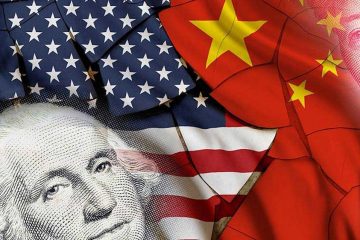The economic news has actually been pretty good of late.
Job growth has been strong, while appears that GDP growth will be as well this quarter. Meanwhile wages are rising faster, as evidenced by the Atlanta Fed’s Wage Growth tracker.
While this good news didn’t lead the Janet Yellen and the Federal Reserve to raise rates interest rates during the FOMC July meeting, it was the cause for a significantly more optimistic FOMC statement, released Wednesday afternoon. For instance, the major difference in today’s statement with the one following last month’s meeting was the removal of language describing a slowdown in job growth and the addition of the following section:
Information received since the Federal Open Market Committee met in June labor market strengthened and that economic activity has been expanding at a moderate rate. Job gains were strong in June following weak growth in May. On balance, payrolls and other labor market indicators point to some increase in labor utilization in recent months.
These additions reflect the very strong jobs report released by the Labor Department earlier this month—and combined with the projection materials released by the Fed in June—could be interpreted as a strong signal that the Fed will raise rates at least once more this year.
But the market isn’t buying it. According to the Fed Watch tool published by the CME group, the fed funds futures market implies that that investors still believe there’s a better chance than not that the central bank doesn’t raise rates at all this year.
The above chart shows, as of 2:25 EST, the probability of where the fed funds rate will be following the FOMC’s final meeting, set to be held this December. As you can see, the market still believes chances are that the Fed will keep interest rates at between 25 and 50 basis points, the same place they are today.
This apparent miscommunication may not be the worst thing for Janet Yellen, who is widely considered to be a more dovish banker, but who has to marshall the support of members of the committee who are more inclined to raise rates. The above chart shows that monetary policy is functionally more dovish than actual policy would lead you to believe, putting her in position of achieving looser monetary policy without alienating Fed hawks.

